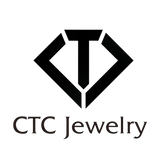Tahitian Pearl Grading Full Guide
How Are Tahitian Pearls Graded?
Around the world, there are diverse approaches to grade, and each may be slightly different to fit their own system or provide better accuracy. But no matter what, a pearl's grade will always be based on two major criteria: its surface and its luster.
We will cover the Official Grading:
1. Official Grading of the Ministry of Pearl Culture Polynesia
3. CMWPEARLS Official Grading
Official Grading of the Ministry of Pearl Culture Polynesia
Top GEM : exceptional pearl, perfect, with an excellent luster.
Category A : Surface without imperfections on 90%. Good Luster
Category B : 70% smooth surface. Minimum good luster.
Category C : 40% smooth surface. Minimum medium Luster.
Category D : Low luster, slight imperfections over 60%. We do not sell pearls in this category.
In order to give a better approach of their grading system here is an easy to understand table for your references.
| Grading | Description and Criteria of grading |
| TOP |
|
| A |
|
| AB |
|
| B |
|
| C |
|
| D |
|
CMWPEARLS Official Grading
We are using a very similar grading however as we are aiming for accuracy to give a better sense of detail to our online customer we have divided our grading in more sections.
| Grading | Surface Area | Blemishes | Description |
| TOP | 0-5% | No Blemishes, Coverable Barely Visible Marks | Pearl is clean, with a 0-1 mark that can be easily covered with drilling. |
| TOP/AAA | 5-15% | Barely Visible Marks, Visible Marks, (Coverable Deep Blemishes) | Pearls have a clean face (1-3 marks) once mounted. All blemishes should be covered. |
| AAA | 15-30% | Barely Visible Marks, Visible Marks, (Coverable Deep Blemishes) | Pearls have a clean face once mounted. Blemishes will be located at the bottom of the pearl. |
| AAA/AA | 30-40% | Barely Visible Marks, Visible Marks, (Coverable Deep Blemishes) | Once mounted, the pearl has a top clean face. There is a slight or visible mark at the corner of the pearl, but no deep mark or white spot is visible. |
| AA/AAA | 40-50% | Barely Visible Marks, Visible Marks, Deep Blemishes, White spot | Pearl has a clean top Once mounted, a deep mark and a white spot are visible at the pearl's corner. |
| AA | 50-60% | Barely Visible Marks, Visible Marks, Deep Blemishes, White spot | Pearl has a minimal face, but over 60% will be covered in deep marks or white spots around the pearl. |
| AA/A | Over 60% | Barely Visible Marks, Visible Marks, Deep Blemishes, White spot | Pearl has no face, all covered in deep marks and white spots. The colors are matte or might be double-faced colors. |
| A | Over 80% | Barely Visible Marks, Visible Marks, Deep Blemishes, White spot | Pearl has no face; it's all covered in white spots ONLY. The colors are matte or might be double-faced with dead color sides. |

